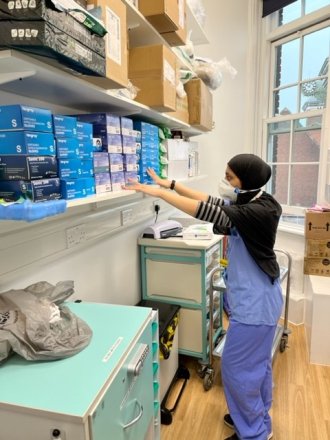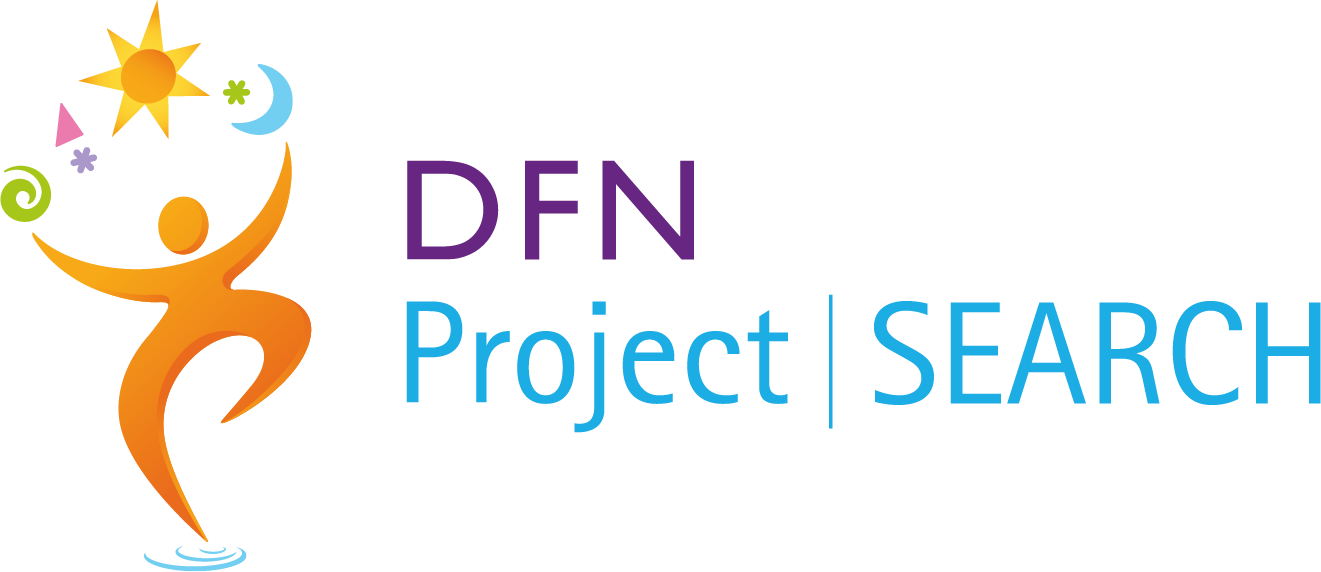Bibi’s Story

‘Through my first two placements working in Back of House and then in the Housekeeping Team at Whipps Cross Hospital, I learnt a lot of important skills such as organisation, communication and respect. These placements were a great experience for me and I received lots of positive feedback from the team. The Back of House Team even asked me to train another intern which really boosted my confidence.
I need to be busy, so I loved how much there was to do in these placements such as picking up and delivering stocks around the hospital, taking patient orders, cleaning up after meals and loading the oven and dishwasher. These physical tasks really suited me – although my colleagues and job coaches often had to remind me to slow down and take a break! When it was time to choose my third rotation, I was offered a placement in the Accident and Emergency Department.
Earlier in the year, the army had been brought into Whipps Cross Hospital to support the doctors and nurses during an increase in Covid-19 cases. Whilst there, the army organised all the equipment in the trolleys in A&E. They then took photos and made charts so the equipment could all be kept in order. The team working in A&E found this so helpful but they didn’t have time to maintain the new system, so they asked DFN Project SEARCH to provide an intern – and so the Whitefield Academy Trust DFN Project SEARCH Manager and my job coaches put me forward. This was the first time a DFN Project SEARCH intern had been placed here so I felt a huge responsibility to do a good job. I had to look at the photos and charts and reload all the equipment in the right places. This meant I had to learn the names of the different types of stock.
The Department was so busy and there was always so much to do but I felt as though I was making a difference and helping the doctors and nurses who were working so hard. The A&E Matron noticed how well the main stock cupboard was organised and said how much the staff and doctors appreciated my hard work and commitment. She said that I had made “everyone’s job so much more streamlined and effective”. As a result of my placement, the A&E team realised that they needed someone to do this job on a permanent basis – I had obviously done a good job! The role was advertised and so I decided to apply.
Even though I was no longer an intern, the job coaches supported me and helped with the application form and the interview. Although lots of other people applied for the role, I was chosen, and I can’t wait to start. I recently got married so things are just getting better and better!’
In the past five years, at least 24% of all interns were from ethnic minorities (whereas the proportion in the UK is 14%). In the most recent cohort, it went up to 28%. This not only shows how inclusive the programme is but also that our partners successfully engage hard to reach groups.
